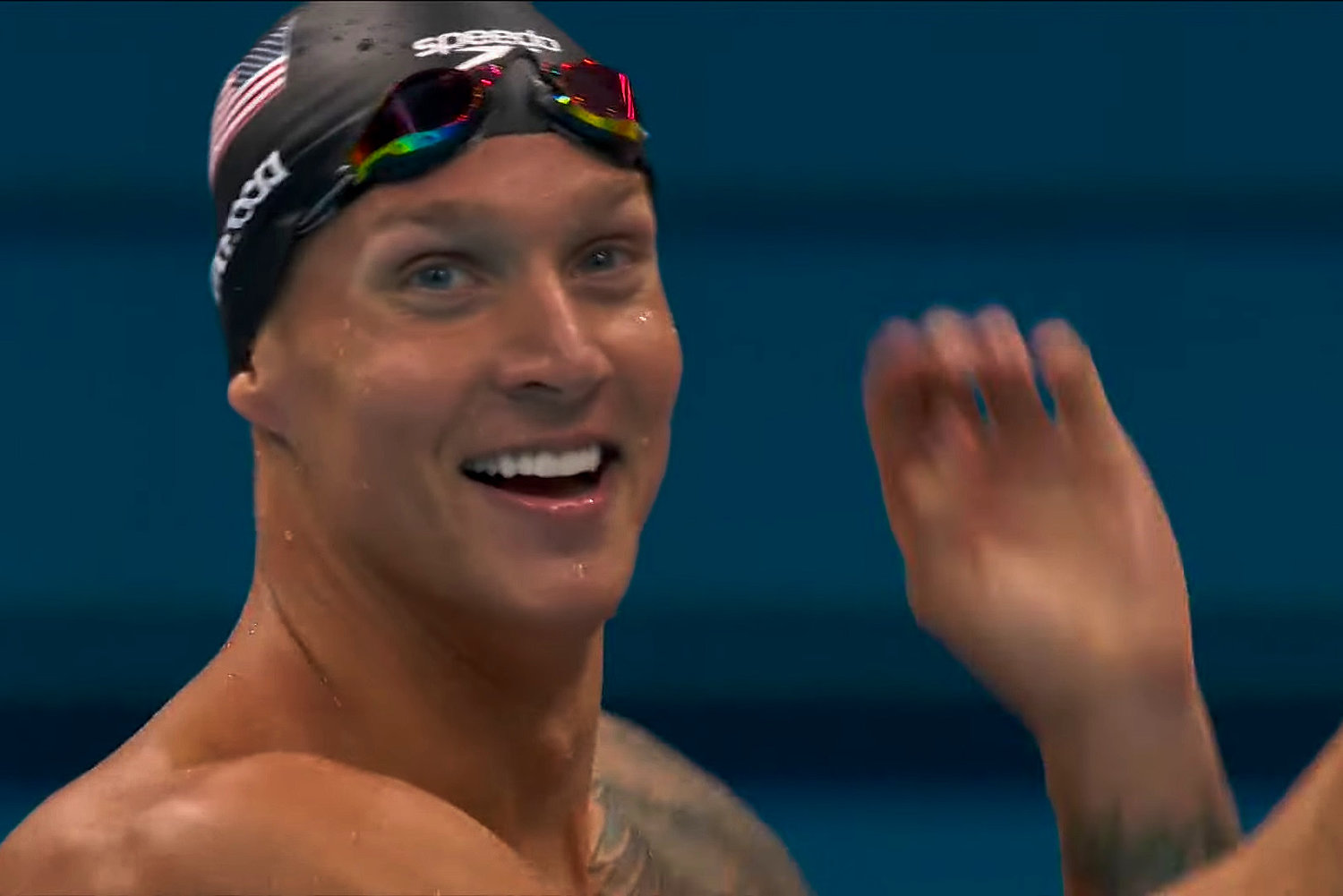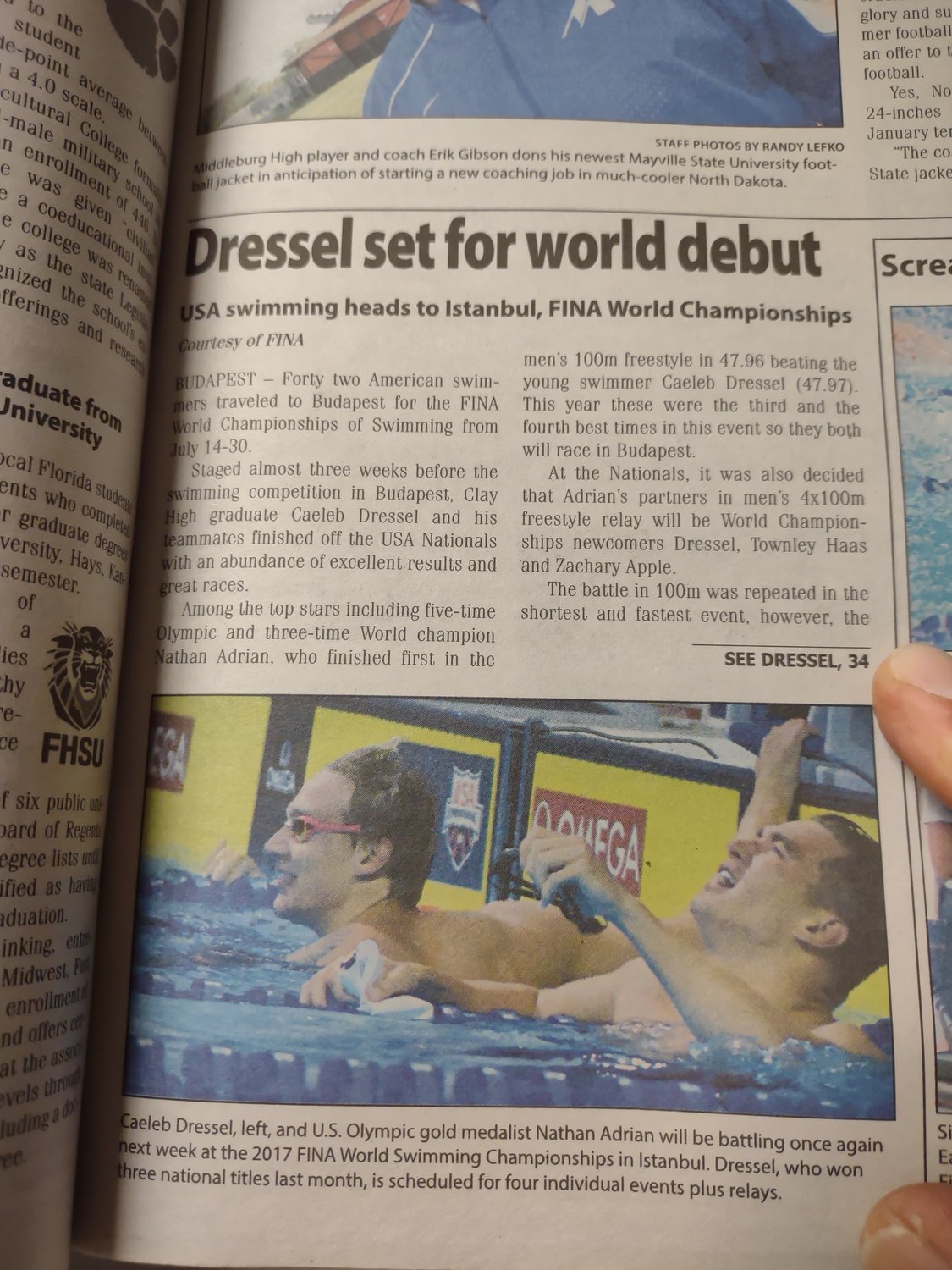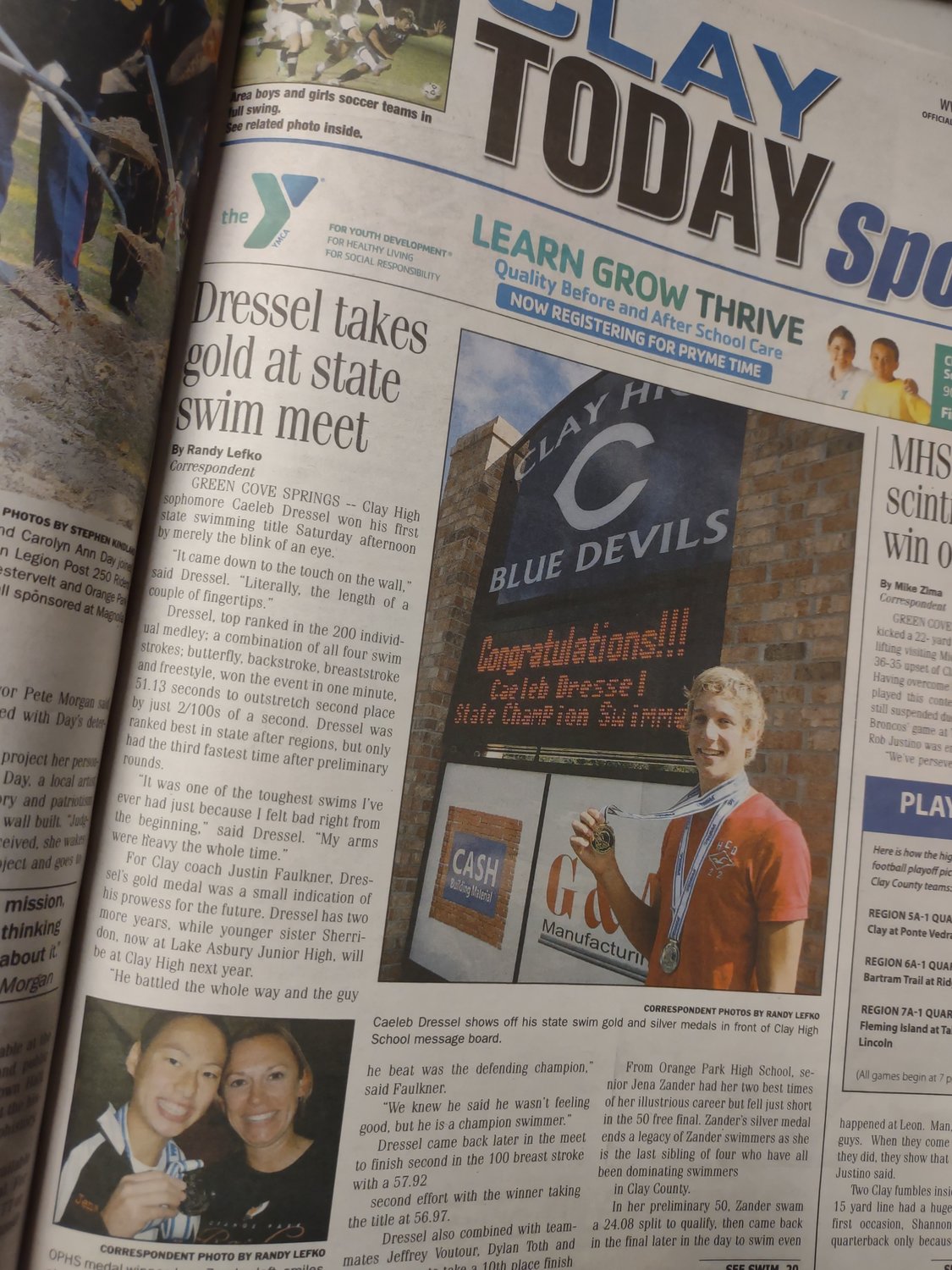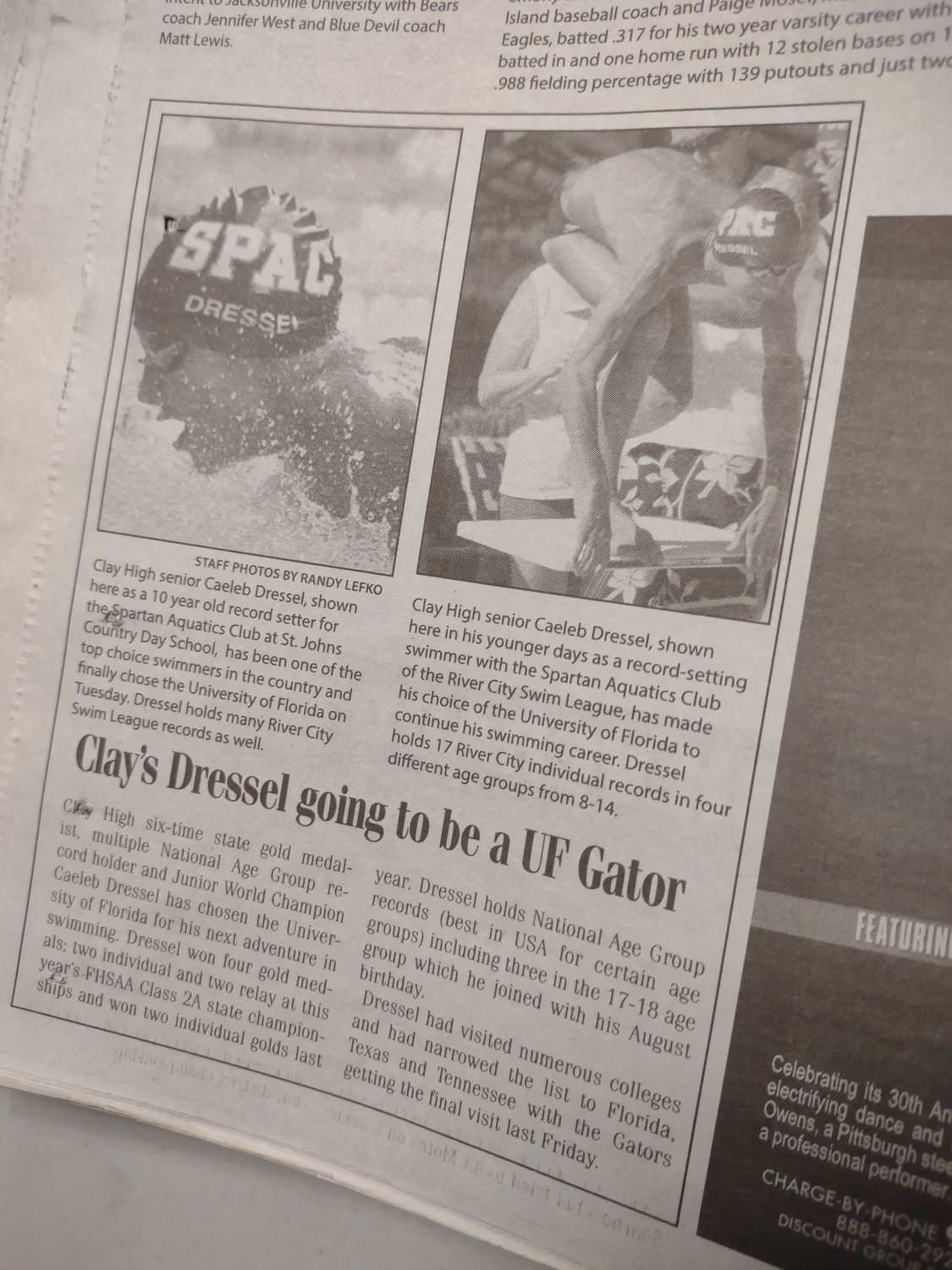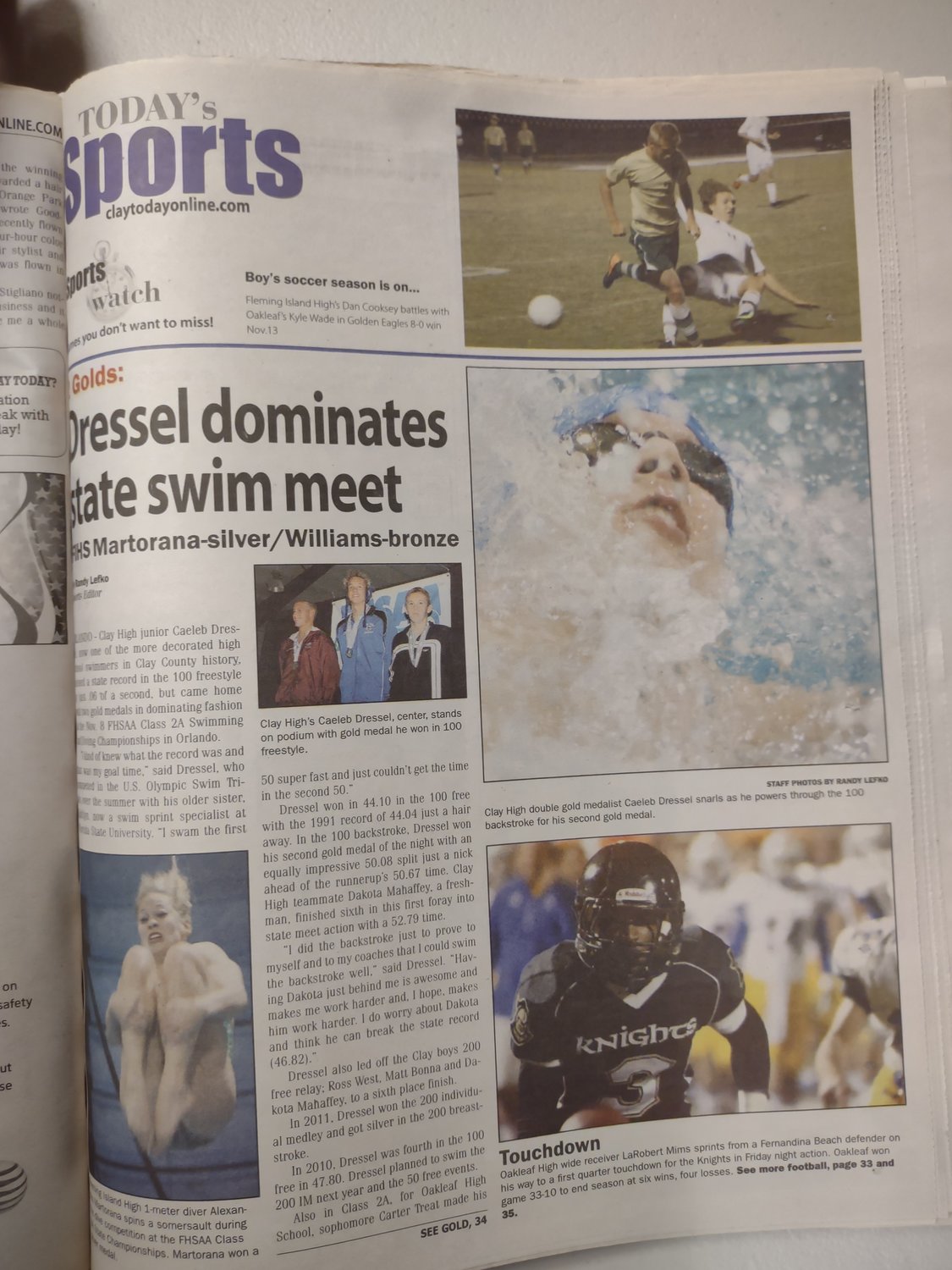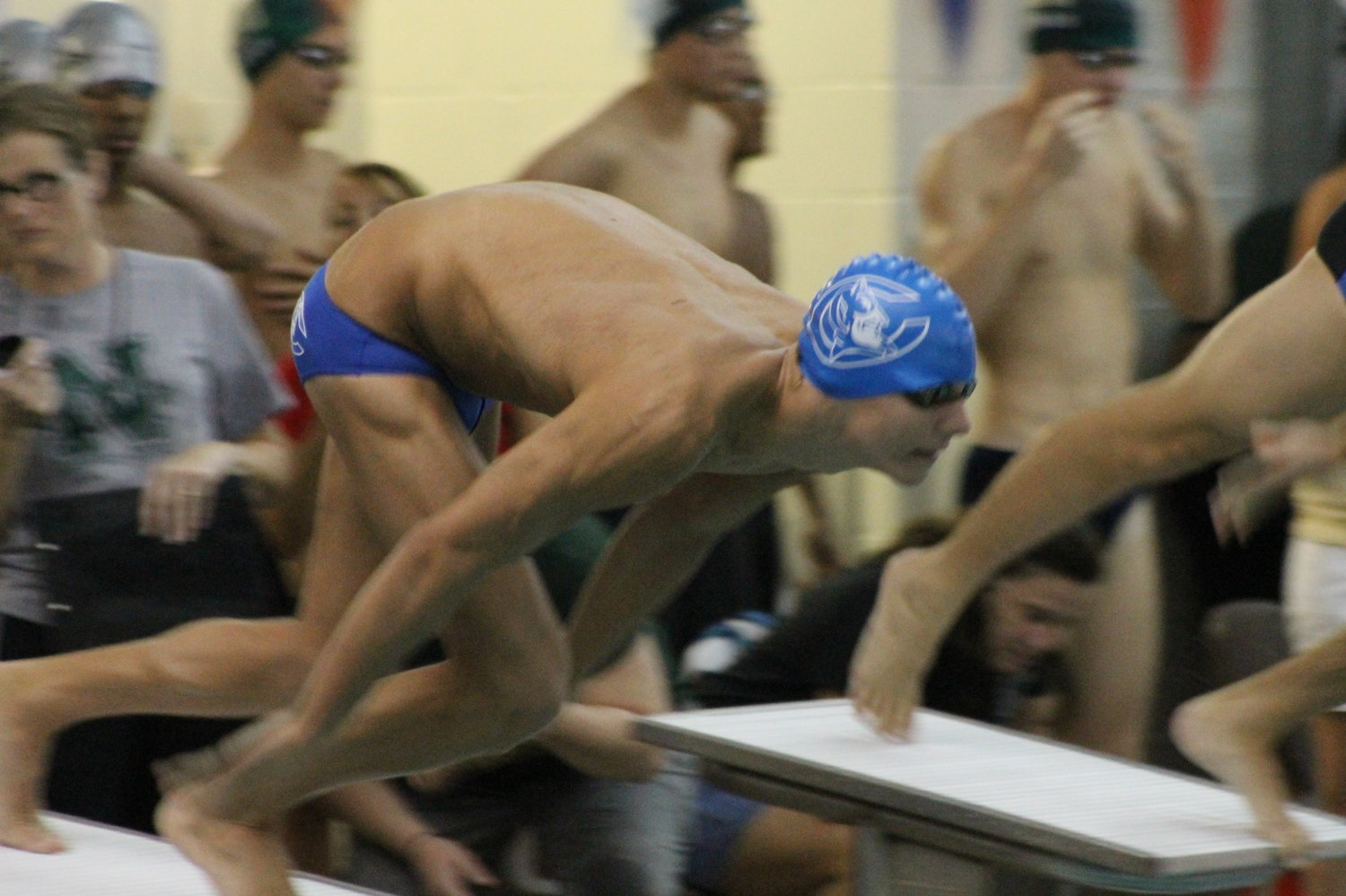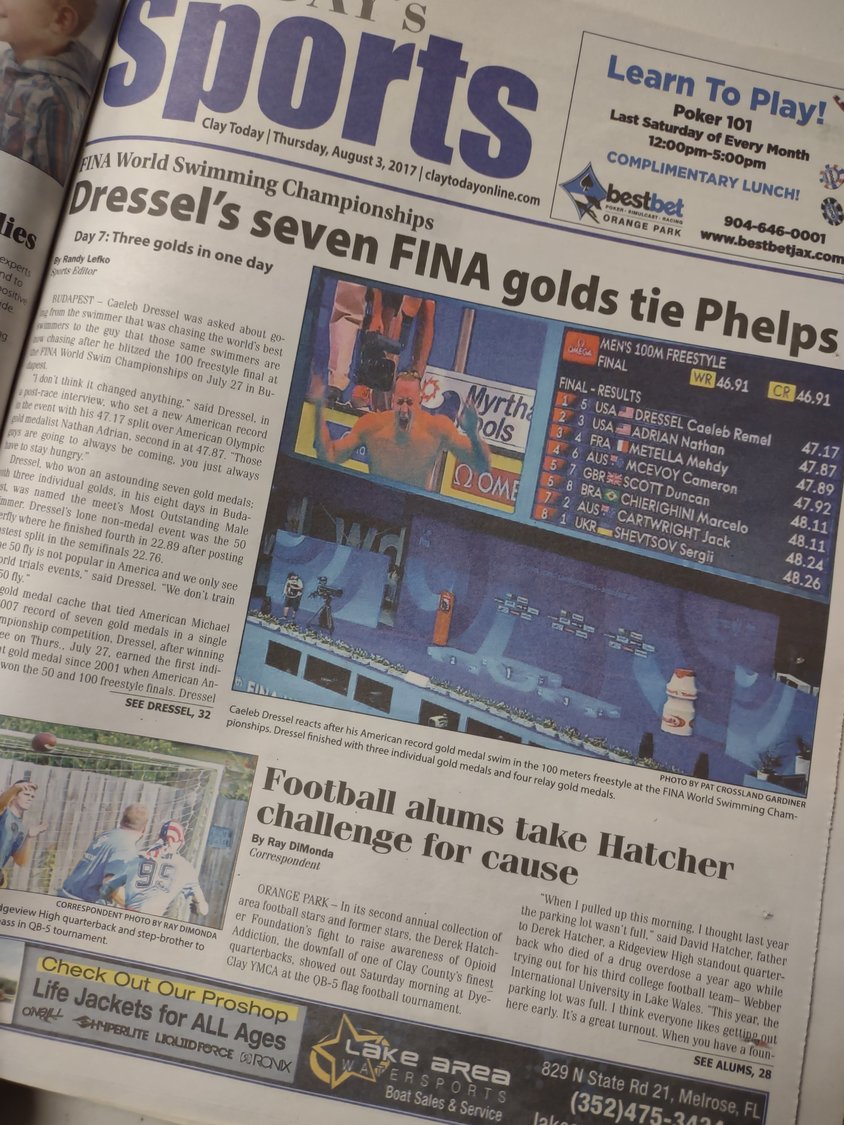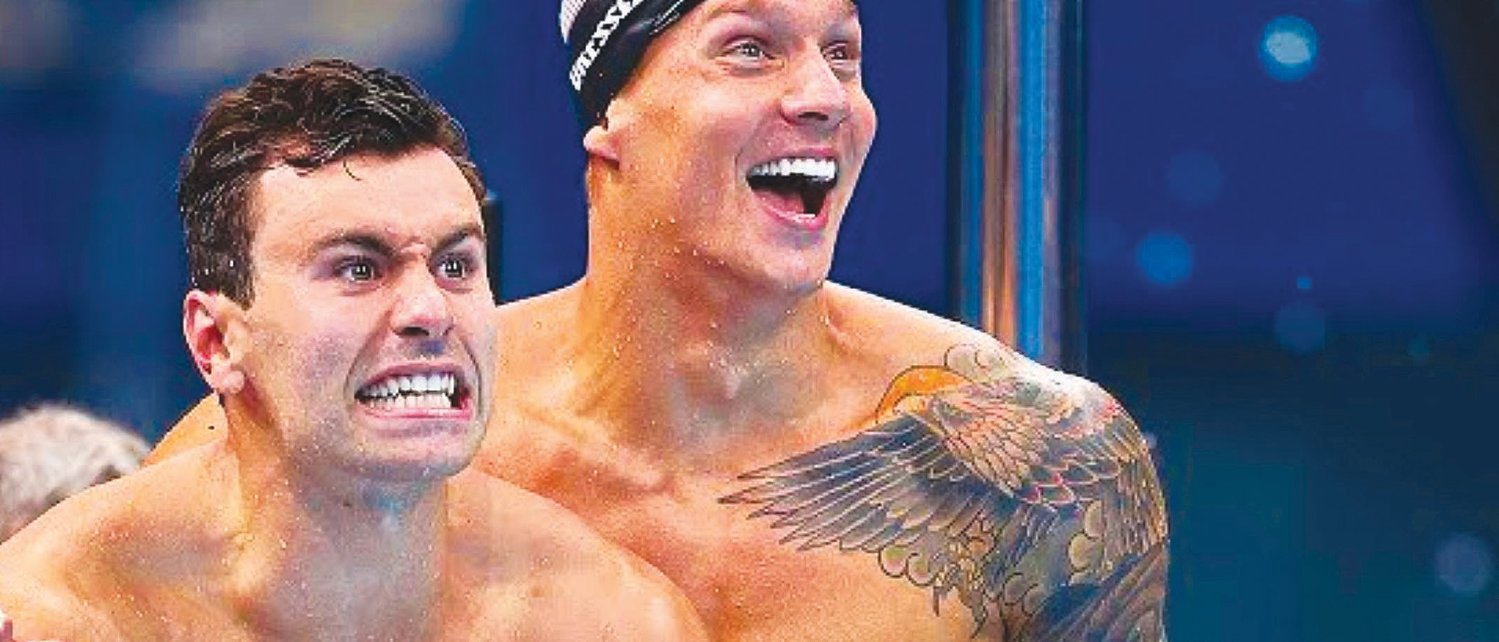Dressel returns to finish Olympic business
Clay High’s Caeleb Dressel, with a combined 13 gold medals on 15 total medals at the last two swimming world championships, has been well documented as the most dominant big meet competitor in the …
This item is available in full to subscribers.
Attention subscribers
To continue reading, you will need to either log in to your subscriber account, or purchase a new subscription.
If you are a current print subscriber, you can set up a free website account and connect your subscription to it by clicking here.
If you are a digital subscriber with an active, online-only subscription then you already have an account here. Just reset your password if you've not yet logged in to your account on this new site.
Otherwise, click here to view your options for subscribing.
Please log in to continueDon't have an ID?Print subscribersIf you're a print subscriber, but do not yet have an online account, click here to create one. Non-subscribersClick here to see your options for subscribing. Single day passYou also have the option of purchasing 24 hours of access, for $1.00. Click here to purchase a single day pass. |
Dressel returns to finish Olympic business
Clay High’s Caeleb Dressel, with a combined 13 gold medals on 15 total medals at the last two swimming world championships, has been well documented as the most dominant big meet competitor in the history of the sport.
Dressel, 24, does have two Olympic gold medals; albeit in relay events, with just a sixth place finish in Olympic competition; in the RIO Olympics 100 freestyle.
After storming to international prominence in the 2017 World Championships in Budapest, Dressel has been steadily warding off challengers with an amazing string of world record performances that is astounding including a first-swimmer under 18 seconds for the 50 freestyle (short course, 25 yards), the first-swimmer under 40 seconds in the 100 freestyle (short course) and the first swimmer under 50 seconds for the 100 individual medley (Long course, 25 meters).
Note: In his first event at Tokyo, Dressel led off the 4 x 100 free relay with a 47.2 split to fuel a dominant American gold medal win over Italy with teammate Zach Apple punching in on the final leg with a 46.6 leg.
“I think we dominated that pretty well,” said Dressel, the USA Olympic team captain, after the race. “We’re never going to doubt ourselves; that’s how team USA works. We had a couple people rule us out in that event and we’re not going to take that. Feels nice to put that back on our home soil.”
That being said, Dressel’s impressive improvement curve has eclipsed the imagination of even the most ardent swim fan after a 145th place in the 50 free and a 152nd place in the 100 freestyle at the 2012 U.S. Olympic Trials with Dressel a young 15 years of age. Dressel’s peek at greatness was as the leadoff leg of the 200 yard free relay where he split at 19.82 split to become the first swimmer under 16 to break 20 seconds in the event.
In 2013, at the FINA World Junior Swimming Championships in Dubai, Dressel won a gold in the 100 free and improved his sub-20 prowess as a 50 freestyle sprinter to a sub-19 (18.94) to become the youngest swimmer ever to break the 19 second barrier.
As the 2020 Tokyo Olympics loom, with Dressel set to swim in 100 free preliminaries on Tues., July 27, Dressel appears ready to eclipse Olympic legend Michael Phelps as the most prolific swimmer in U.S.A. history. Dressel joined Phelps in the RIO on the gold medal 400 free relay, then earned a gold as a prelim swimmer on the 400 medley relay, but finished just sixth in the 100 freestyle.
Since the RIO Olympics, where Chalmers seemed out of race contention at the 50 turn, but roared back in the final 50 to win (47.58) the gold ahead of defending gold medalist Nathan Adrian of the USA (third) and Dressel sixth, Dressel has been scorching fields in world championships, American championships and even the International Swim League; a collection of pro and Olympians worldwide competing in the off-Olympic COVID year in team format. Dressel was the league Most Valuable Swimmer.
Ironically, the names affixed to most swimming commentators with respect to Dressel’s competition at Tokyo are Australian Kyle Chalmers, the 2016 Olympic gold medalist in the 100 freestyle as an 18 year old, and 16 year old Romanian newcomer David Popovici, who recently stunned the world with a 47.30 at the European Junior Olympics.
“He was 47.50 in the morning (at the European Junior Olympics Championships prelims) and that definitely grabbed my attention,” said Dressel, in a post U.S. Olympic Trials press conference on July 9 in Omaha. “I certainly was not going that fast at that age.”
Dressel’s reaction to Popovici is the race strategy that the young Romanian has employed to his split.
“How he is swimming is more impressive,” said Dressel. “When I was swimming the 100 free as a 16 year, I was just seeing how fast I could go out, but he seems to be able to hold a 24.3 to finish. That’s very impressive.”
In an analysis of the three sprinters set to engage in Tokyo, former U.S. Olympic swimmer and International Swimming Hall of Famer Gary Hall, Sr., a three-time Olympic medalist (silver in 1968 400IM in Mexico City, silver in 1972 200 fly in Munich and bronze in 1976 100 fly in Montreal (also USA flagbearer) and former world record holder in five events, picked apart the styles of the three swimmers prior to the Tokyo Olympics. Note: Hall’s son, Gary Hall, Jr., also swam in three Olympics (1996, 2000 and 2004) with 10 medals; five gold, three silver and two bronze as the pair are the first father-son duo to compete and medal in three Olympics. Hall, Jr., won the 2000 Sydney games 50 free title in a tie with American Anthony Ervin. He repeated in 2004 in Athens in the 50 free.
Comparing Dressel, Chalmers and Popovici, Hall, Sr., noted on his swim blog TheRaceClub on Youtube that the race strategies of the trio will make the sprint race, especially the 100 freestyle, the marquis event for swimming in Olympic history.
“The rematch boils down to the rematch between Kyle Chalmers and Caeleb Dressel and the new kid on the block, Romania’s 16 year old David Popovici; untested in major competition, but crazy fast,” said Hall. “In some ways, Popovici reminds me of Gary Hall, Jr., except he’s a little faster though Gary split 47.4 in relays in his day in a skimpy Speedo.”
One aspect of Hall’s comparison is Dressel dynamic starts versus Popovici’s rather lackluster starts.
“Popovici has a very average start; he entered the water in his championship race almost a half body length behind the top starter,” said Hall. “He will probably be at Dressel’s waist when he breaks out. He breaks out extremely hard and still hit the wall at 22.9 in that race.”
Hall noted Popovici’s stroke is aided by a very deep dip of his head on his strokes.
“His low drag coefficient is impressive because he buries his head way underwater when he strokes,” said Hall, noting Popovici’s average 100 stroke rate. “Behind him, he has a massive kick for propulsion.”
For Dressel, Hall’s most noted highlight was that his stroke rate increased dramatically as he approaches the wall at the first turn as well as the finish plus his explosive start.
“Look where Dressel’s hands hit when he hits the water on his starts,” said Hall. “Caeleb goes six or seven kicks to the 15 meter mark and, against Chalmers at the world championships, Dressel was a half body length ahead before hitting his breakout,” said Hall. “Dressel not only has the explosive start, but his underwater and breakout will have him well ahead from the start.”
Hall cited Dressel’s stroke rate; from 100 or so after his breakout to an uptick to a 106-ish rate as he approaches the 50 meter turn.
“Dressel comes in (near 22-flat, Chalmers at 22.9); boom, boom, boom and makes his turn, but does not slow down after the turn,” said Hall. “Chalmers is still in the same position as the start.”
With Chalmers, Hall noted that his stroke rate rarely varies throughout the race.
“He is a steady-Eddie, he’s a machine with his stroke,” said Hall. “Chalmers keeps 105 in and 105 out with a massive kick. He doesn’t speed up, he doesn’t slow down.”
The difference, for Hall, is the final 15 meters of the race where Dressel upticks his stroke and doesn’t breathe to the finish.
“To the 35 meter mark after the turn, Dressel will throttle back a bit to set his finish,” said Hall. “At 15 meters to the wall, everything changes for Dressel. He holds his breath and increases his stroke rate dramatic to the wall. He doesn’t do that, he doesn’t win because Chalmers will not be slowing down.”
In their fastest races, Hall noted the time splits; Dressel 46.96 (22.29/24.67), Chalmers 47.08 (22.79/24.29) and Popovici 47.30 (22.97/24.33).
“The start is Dressel’s to win the race, the finish is up for grabs after the turn,” said Hall. “Dressel swims to win and has been uncomparable. Chalmers and Popovici need perfect races just to stay close, Whether they choose to alter their strategy is to be seen.”


